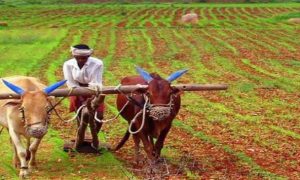According to top sources, 2029 could see simultaneous Lok Sabha and state assembly polls. The terms of some state assemblies set to vote next in late 2028 could be extended by a few months to let them poll alongside the 2029 Lok Sabha elections, while the tenure of other state assemblies voting after 2024 could be curtailed to bring them in sync
The Bharatiya Janata Party could make “One Nation, One Election” a major promise in its manifesto or Sankalp Patra for the general elections starting next month, meaning 2029 could see simultaneous Lok Sabha and state assembly polls, top sources have told News18. The Uniform Civil Code (UCC) will also prominently feature in the manifesto, they added. The party is presently carrying out a massive public feedback exercise for the manifesto.
Read More: PMK announces alliance with BJP for Lok Sabha elections
The high-level committee report on ‘Simultaneous Elections in India’ was submitted this month to the President of India. The next government could accept the report soon after coming to power, sources said.
The terms of some state assemblies set to vote next in late 2028 could be extended by a few months to let them poll alongside the 2029 Lok Sabha elections, while the tenure of other state assemblies voting after 2024 could be curtailed to bring them in sync.
Both “simultaneous elections” and “Uniform Civil Code” had featured in the BJP’s manifesto in 2019 too. That manifesto had said the BJP was committed to the idea of simultaneous elections for Parliament, state assemblies, and local bodies to reduce expenditure, ensure efficient utilisation of government resources and security forces, and for effective policy planning. “We will try and build consensus on this issue with all parties,” the 2019 manifesto said.
Read More: ‘Ghar Ghar Guarantee’: Cong’s Manifesto to Focus On ‘Paanch NYAY’, ‘Pachees Guarantee’
The government now has the report from the Ram Nath Kovind committee to move ahead on the matter, even though 15 political parties like the Congress, Trinamool Congress, and Dravida Munnetra Kazhagam opposed the idea. The report has said a Constitution Amendment Bill is needed to be passed in Parliament with no need for ratification from the state governments.
KEEPING PROMISES
The BJP has fulfilled major manifesto promises from 2019, like the abrogation of Article 370 sections in Jammu and Kashmir, and the implementation of the Citizenship Amendment Act.
The 2019 manifesto said the BJP believes there cannot be gender equality till such time India adopts a Uniform Civil Code and said it was committed to drafting a UCC. BJP sources said the Uttarakhand government has shown the way by passing a UCC law and other BJP-ruled states could do so in the third term of the Modi government. The BJP could hence cite the Uttarakhand example to again promise UCC in its 2024 manifesto.
Read More: Lok Sabha polls 2024: Nomination process begins for first phase across 21 states and UTs
WHAT ‘ONE NATION, ONE ELECTION’ REPORT SAID
The report has said that after this Lok Sabha election when Parliament meets, an “appointed date” should be to notify the move. The report said that all legislative assemblies constituted by state elections after the appointed date shall only be for the period ending by the subsequent general elections in 2029. In effect, state governments formed between 2024 and 2028 will have a shorter term till the 2029 Lok Sabha elections, subsequent to which there will be automatic simultaneous parliamentary and state elections in 2029. For example, a state that sees an election in 2025 will see its government having a four-year term, while one that sees an election in 2027 could only have a two-year term till 2029.
The report has also recommended that in the event of a hung house, no-confidence motion, or any such event, fresh elections may be held to constitute the new house – be it in Lok Sabha or state assemblies. The term of the new government hence formed will also be only for the unexpired term of the preceding full term of the Lok Sabha and the expiration of this period shall operate as dissolution of the house. The report has also recommended amendments to existing laws for enabling a single electoral roll and a single Elector’s Photo Identity Card.
The panel has asked for the constitution of an implementation committee to look into the execution of the recommendations. The report has recommended that in the second stage, the polls to municipalities and panchayats will also be held within 100 days of the elections to the Lok Sabha and state assemblies.
The report says that the committee finds that the loss of simultaneity in elections after the first two decades of India’s independence has had a baneful effect on the economy, polity, and society. “Initially, two elections were held every ten years. Now, several elections are being held every year. This casts a huge burden on the government, businesses, workers, courts, political parties, candidates contesting elections, and civil society at large. The committee, therefore, recommends that the government must develop a legally tenable mechanism in order to restore the cycle of simultaneous elections,” the report says.
“Upon all-inclusive deliberations the committee concludes that its recommendations will significantly enhance transparency, inclusivity, ease and confidence of the voters. Overwhelming support for holding simultaneous elections will spur development process and social cohesion, deepen the foundations of our democratic rubric, and realise the aspirations of India, that is Bharat,” it says.



































